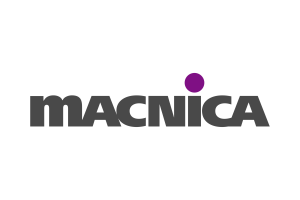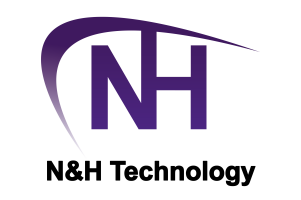Interview with Thomas Ulbrich, VW
"E-Cars for Millions, Not Just Millionaires."
Fortsetzung des Artikels von Teil 1
Combining Product and Production Experiance
What is the problem at the moment?
We are still lacking some legislative details, for example in rental and property law. As a tenant of an apartment, try installing a wallbox on your house today, i.e., your own charging station: a difficult undertaking. In the Netherlands or Norway the legislation is already much more advanced. The agreements made in the coalition agreement are therefore all necessary steps towards the future. Now it is a matter of working out the associated regulations in detail and putting them into practice.
Although Tesla is currently fiercely struggling to establish mass production and Volkswagen has enormous experience in this area, the start-up is still selling significantly more electric vehicles than the major group. What is the reason for this?
The Volkswagen Group's major E offensive is only just beginning. Audi recently introduced the e-tron electric SUV, and Volkswagen is following suit with the first ID at the end of next year. I am convinced that overall we have come at exactly the right time to pave the way for the breakthrough of electric mobility on a broad scale.
At least in terms of its manufacturing expertise, VW could have made the breakthrough earlier. Why didn't that happen?
Timing is crucial in the automotive business. In the past, the market simply wasn't that far along. The same applied to technology and charging infrastructure. Now that's changing. With the MEB platform, we are combining our product experience with our production expertise and will thus spread e-mobility. We want to build cars for millions, not just for millionaires.
What is the current development status of the MEB?
We are right on schedule, i.e., we are currently building prototypes and conducting long-term tests. For production, we have completely planned out the concepts and are starting to implement them. At the end of 2019 we will be rolling out the first cars in Zwickau, and by 2020 we will be supplying a total of 150,000 electric vehicles as a brand - 100,000 of them on the MEB platform alone. We will then scale the volumes up to over one million electric cars by 2025. Group-wide this means: 27 production starts in three world regions within three years.
The first model of the ID family based on the MEB platform bears the working title "Neo", is to be available from 2020 and will cost less than 30,000 euros in the basic version. The entry-level price for the electric compact car e.Go Life produced in Aachen is just under 16,000 euros. Are there any plans at VW for a vehicle in a similar price category?
We are talking about two completely different vehicle worlds. The ID will be a desirable car with a range of more than 550 kilometers, great driving dynamics and a whole new level of digital networking. It is indeed decisive for us that our e-cars will bring us up to the level of similarly equipped diesel cars in terms of price. And that is what we will achieve.
Then let's take a look at the productions. The e.Go Life is manufactured according to firm statements in an Industry 4.0 show piece plant, which belongs to the most modern automobile productions in Germany. Can VW keep up with this?
At Volkswagen, all factories are already using Industry 4.0 technology, and there's no other way. Of course, we look at what the e.Go-Life team is doing in Aachen with interest.However, you always have to keep an eye on the completely different objectives of the vehicle concepts. We go into volume production with 1500 vehicles per working day at a single location - an objective that does not exist in the start-up you have mentioned. With the MEB, we are making massive progress in production technology and automation - but always secured in a way that the risks remain manageable and we can meet our production targets. After all, we bear a great responsibility towards our employees - and our customers.
The VW plant in Zwickau will be converted into a pure production site for electric vehicles. The first ID models are expected to roll off the assembly line there at the end of 2019. How are you on schedule?
We will start with the compact ID at the end of 2019. From the end of 2020, only e-cars will roll off the assembly line in Zwickau. We will produce a total of six different e-models in Zwickau, the last two will be added in 2021. With them, we will then achieve full capacity utilization.
VW is investing more than one billion euros in Zwickau. However, a much larger budget has been planned for e-mobility in China, the latest figure being 15 billion euros. To what extent are domestic locations threatened by this commitment?
The two figures you mentioned cannot be directly compared with each other. It is true that the Group is investing around 15 billion euros in e-mobility, digitization, new mobility services, and autonomous driving in China. Outside China, we are investing a further 34 billion euros in these areas, with a clear focus on Germany. So the German locations have excellent prospects. But of course China is important: those who are not represented there also have a hard time in the other regions of the world. In this respect, we are well positioned for the future.
Interestingly, your boss, VW CEO Herbert Diess, estimates that German carmakers' chances of winning the e-mobility race are just 50 percent. With a revealing reason: The electric drive offers too few possibilities for differentiation. Above all, the decisive factor is the intelligence of the car. And companies like Google or Amazon are even better. How do you intend to change that?
I fully agree with the statement made by Herbert Diess. Both the new players and the OEMs still have a lot to do in terms of the customer appeal of e-vehicles. This is an open-ended race. And it is precisely for that reason that Volkswagen has its own Board of Management member for e-mobility, who accepts this challenge.
Against this backdrop, wouldn't it make more sense to have a separate Board of Management division for automotive intelligence?
Right from the beginnen, we designed the MEB in such a way that it also enables the corresponding networking and vehicle intelligence. Therefore, the allocation of this topic to the E-Mobility Management Board is only logical. Of course, other areas of the Board of Management are also involved in further development. As already mentioned, rigid boundaries are not sustainable here. In addition, partnerships with other companies can also make sense, especially when it comes to vehicle intelligence. We have just teamed up with Microsoft to jointly advance the development of the Volkswagen Automotive Cloud.
A final question in view of the current situation: Herbert Diess wants to significantly increase the proportion of e-vehicles in the Group's own company cars by means of appropriate regulations. What kind of car do you drive?
An e-Golf;out of conviction.
- "E-Cars for Millions, Not Just Millionaires."
- Combining Product and Production Experiance





